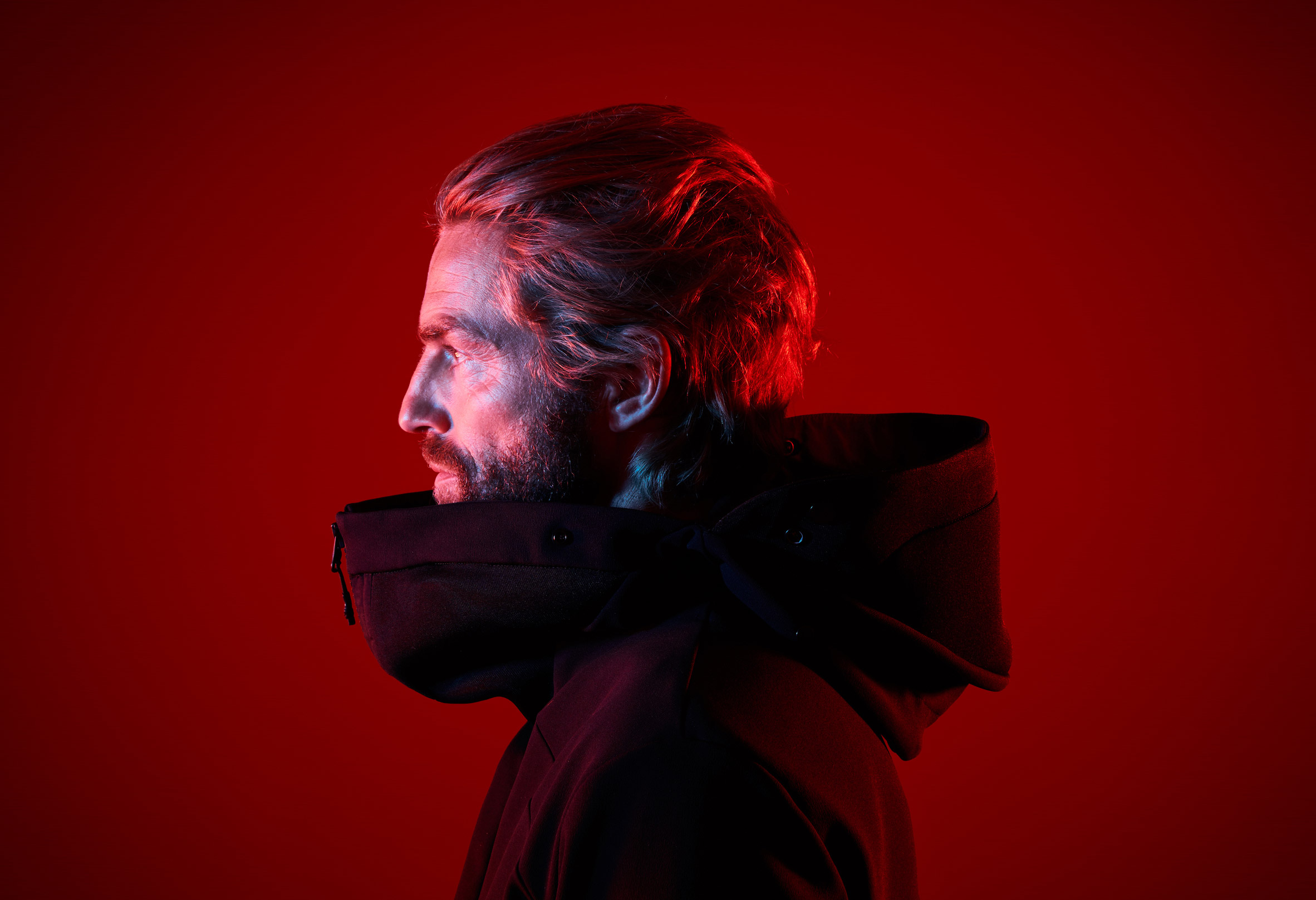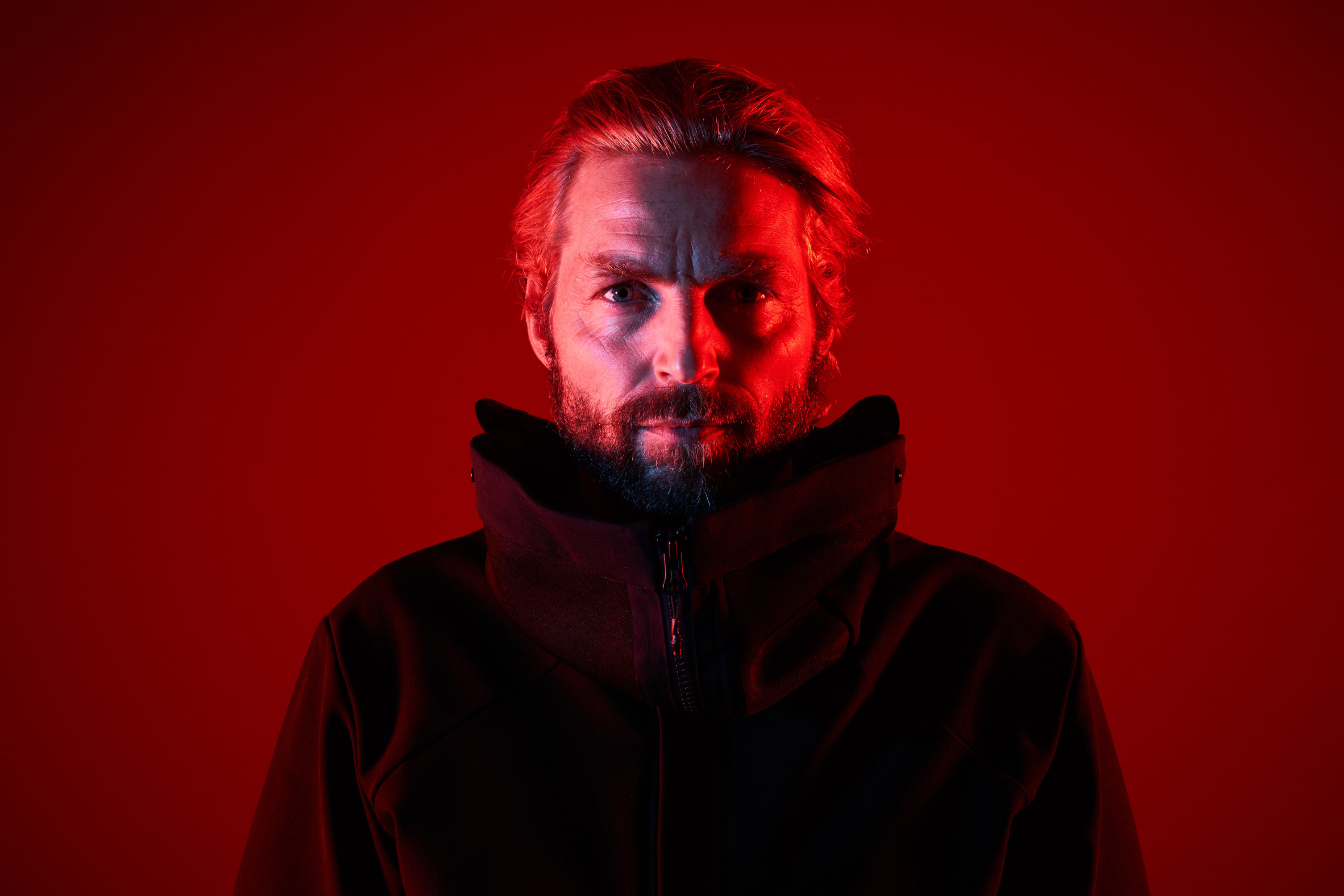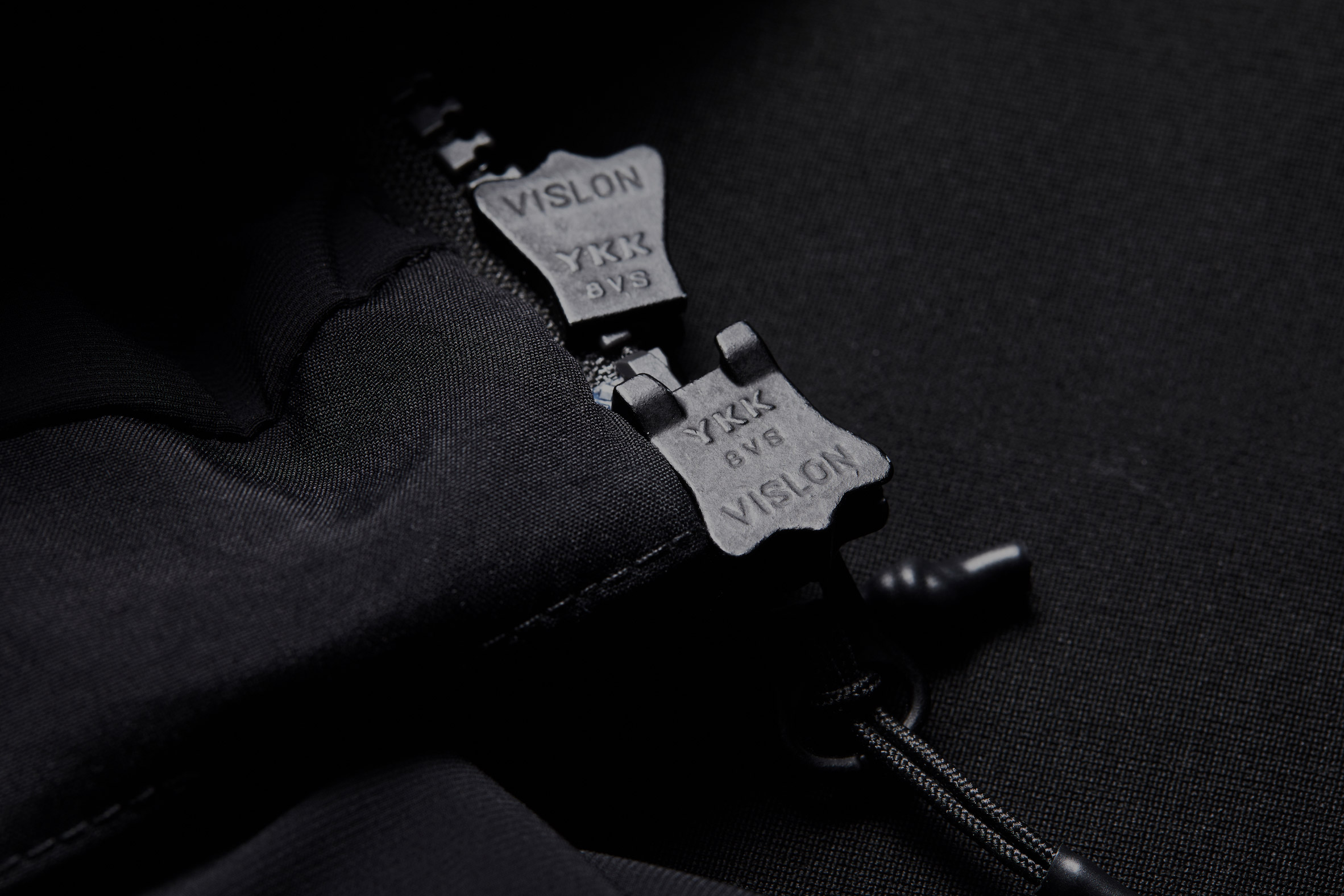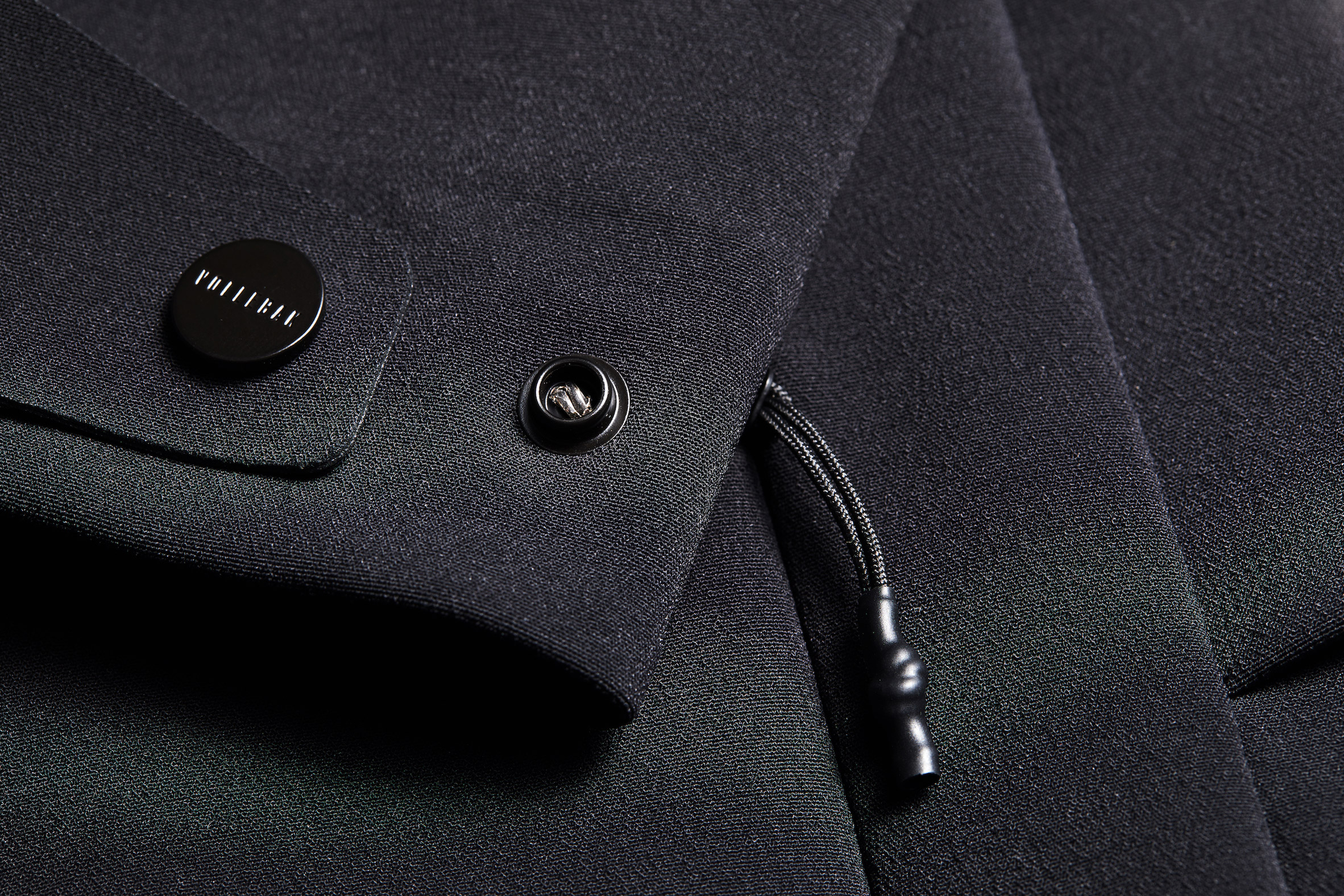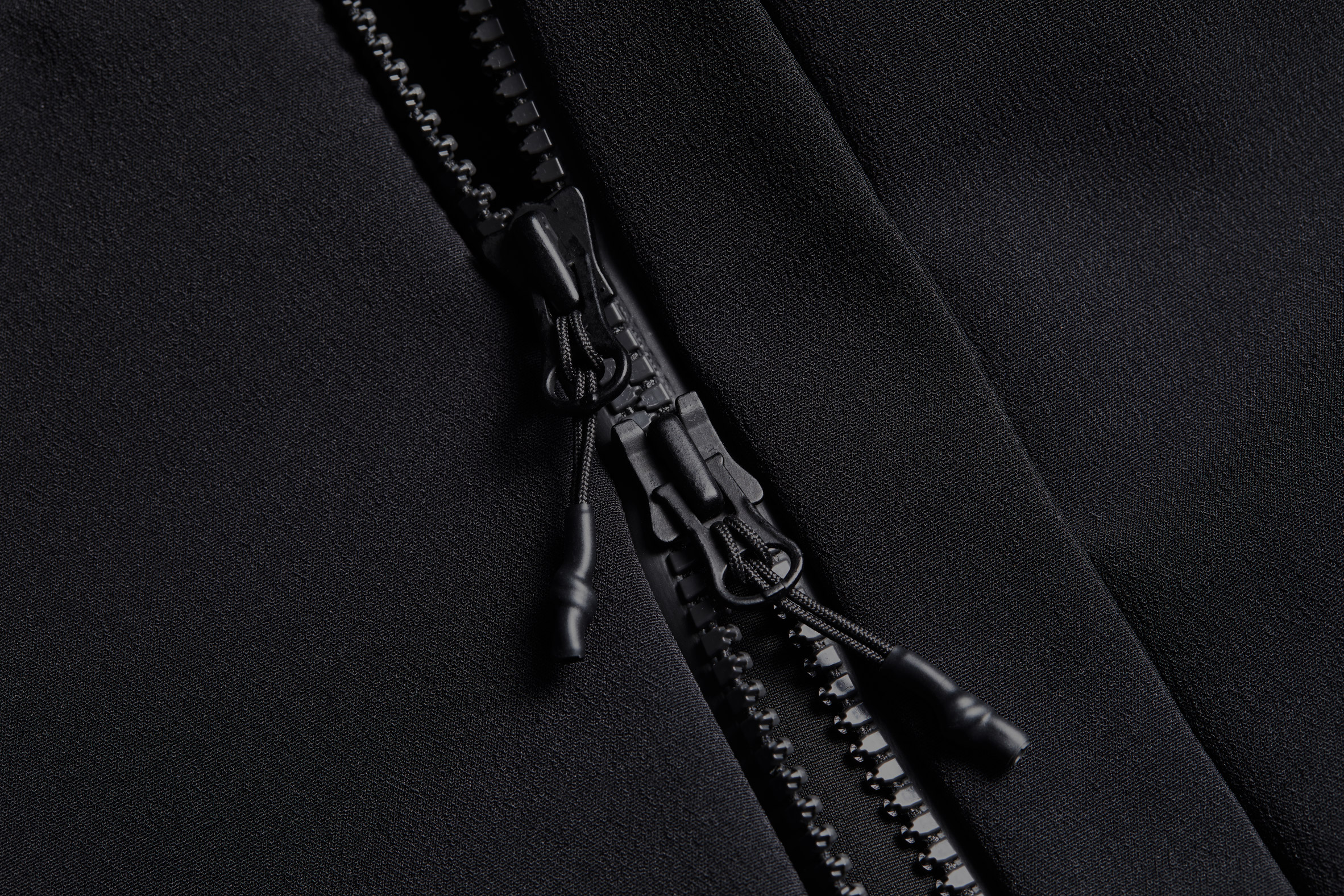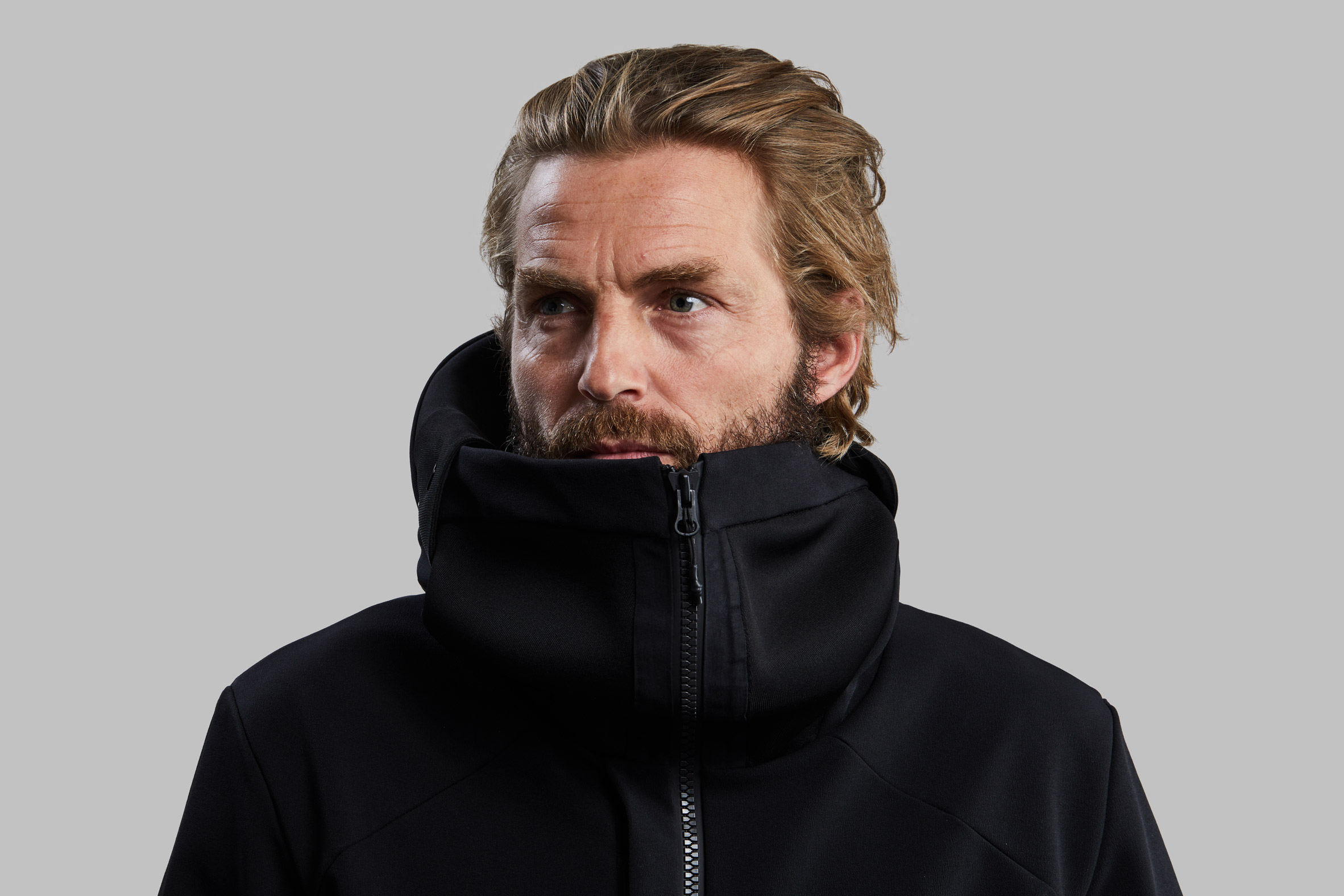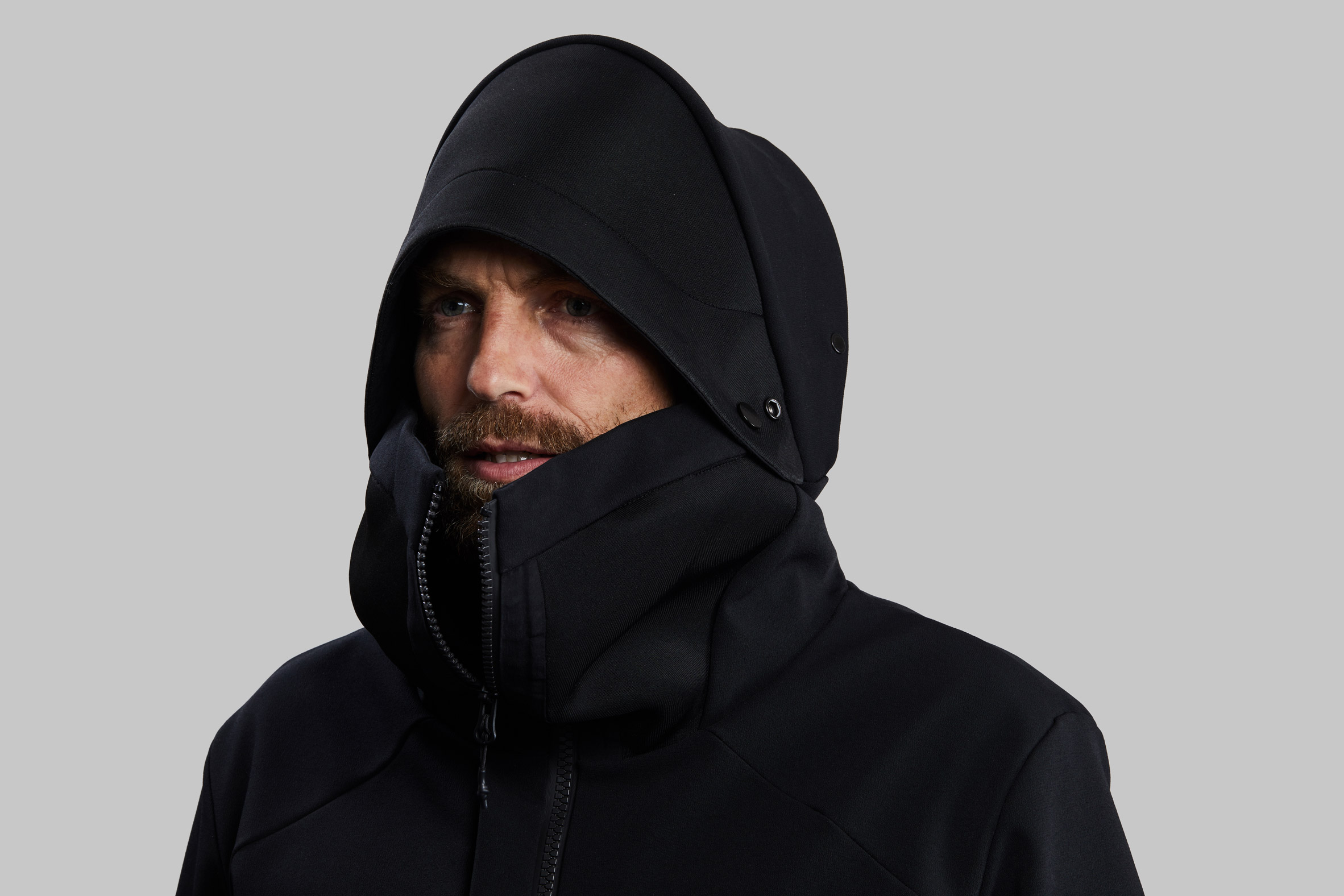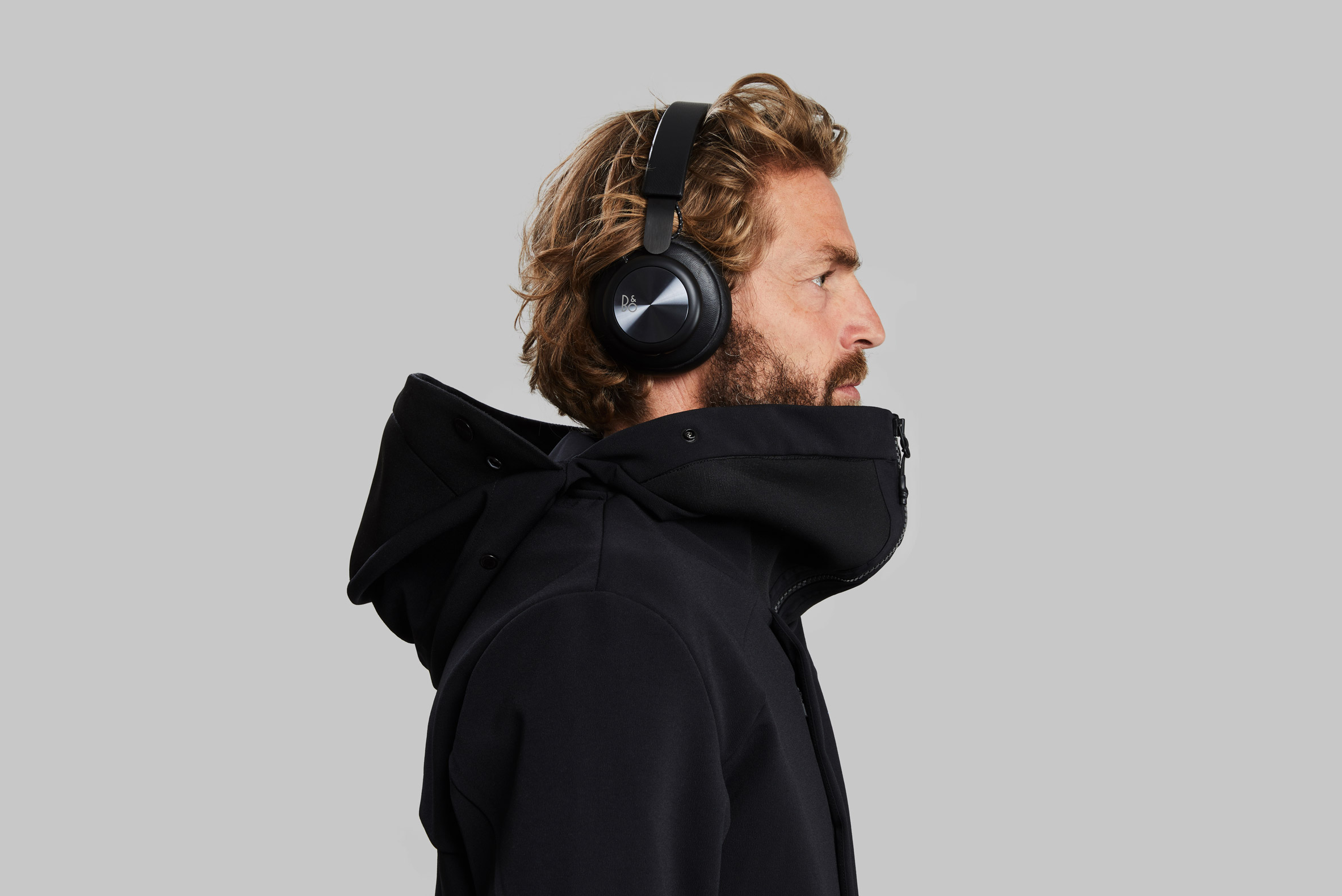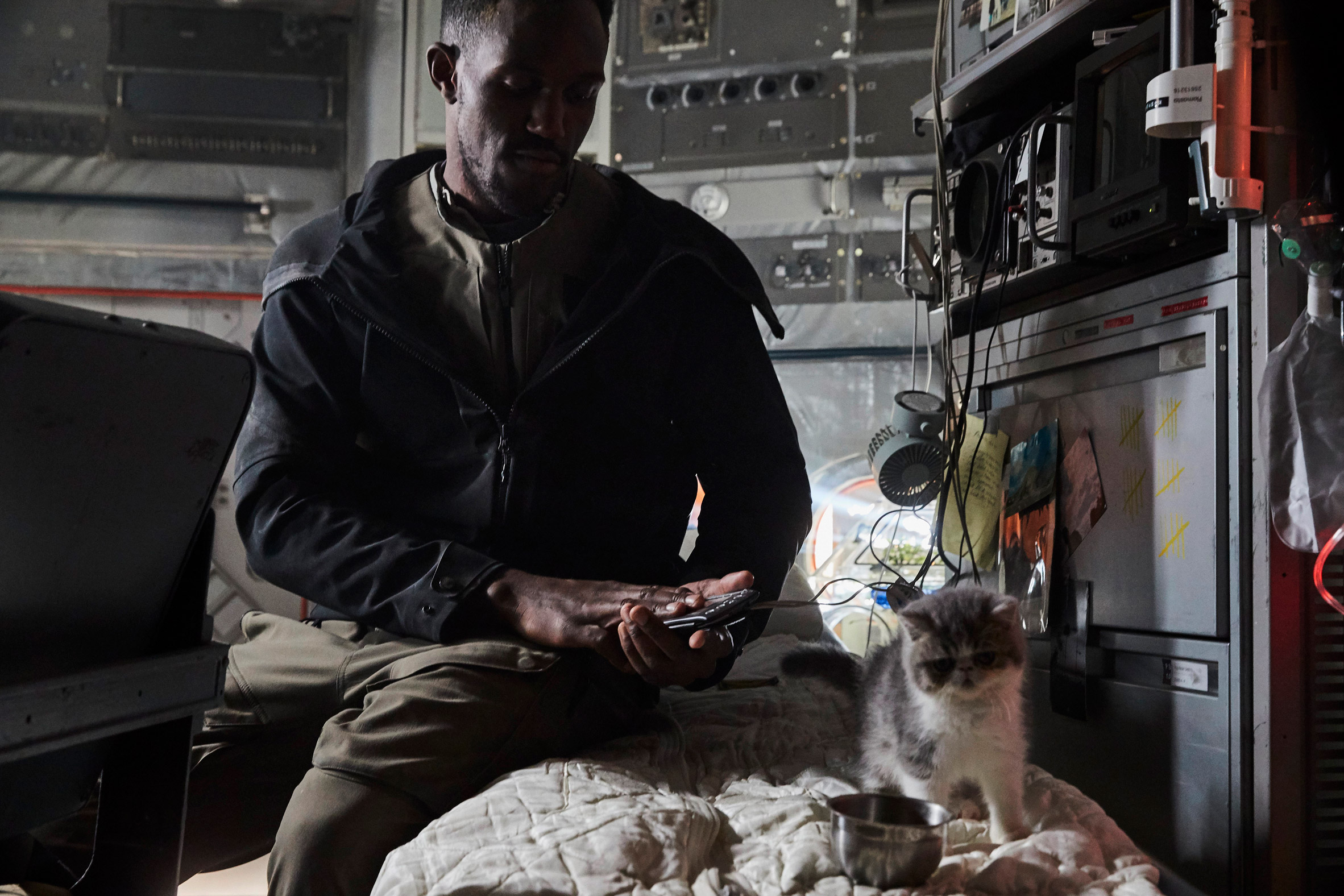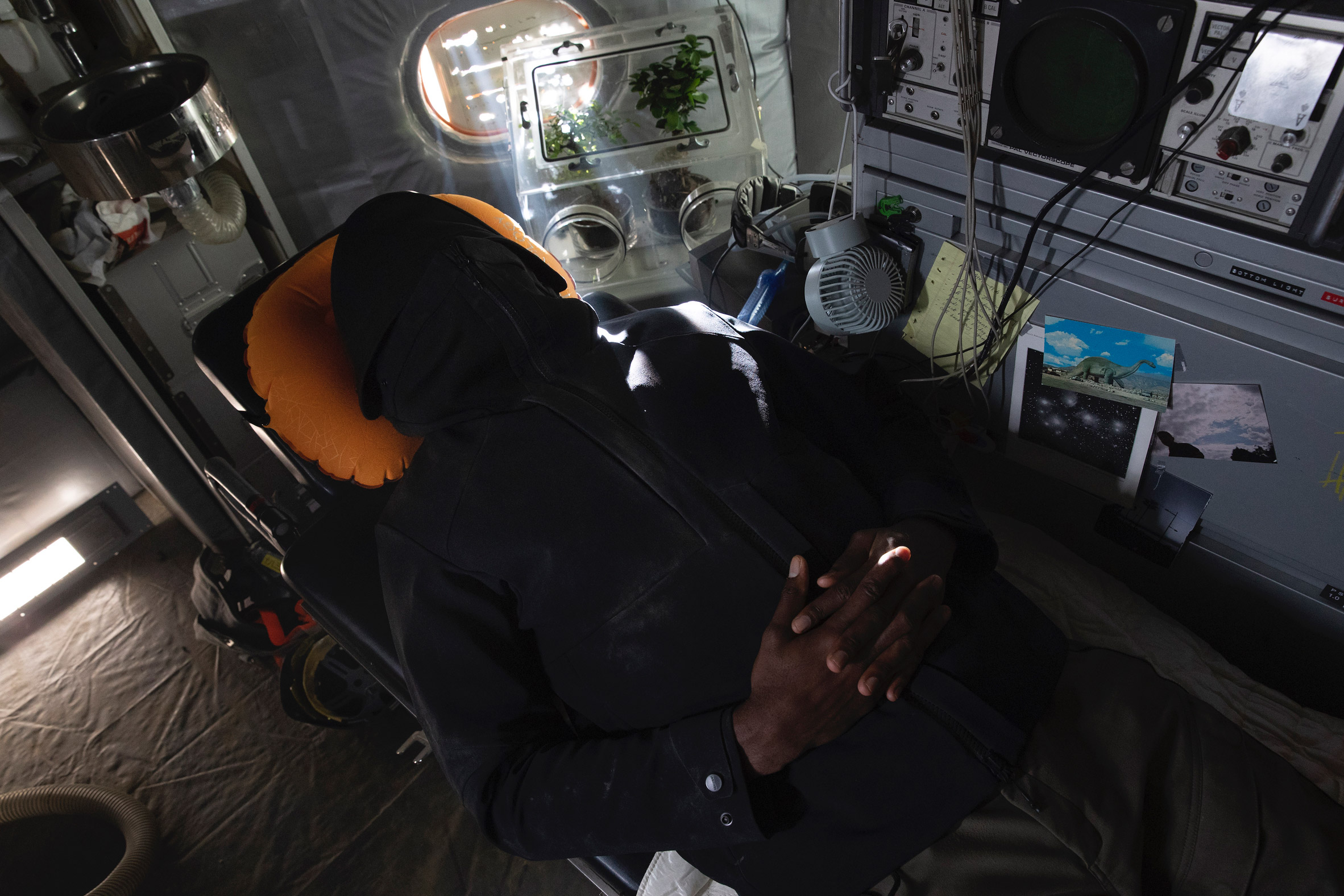Vollebak designs jacket that lets the wearer sleep in space
by Tom RavenscroftExperimental clothing brand Vollebak's Deep Sleep Cocoon jacket is designed to allow people to sleep anywhere, including in space.
The Deep Sleep Cocoon jacket has been designed by Vollebak so that people wearing it can sleep in the most difficult conditions. It was created specifically for space where sleeping can be difficult due to noise and light.
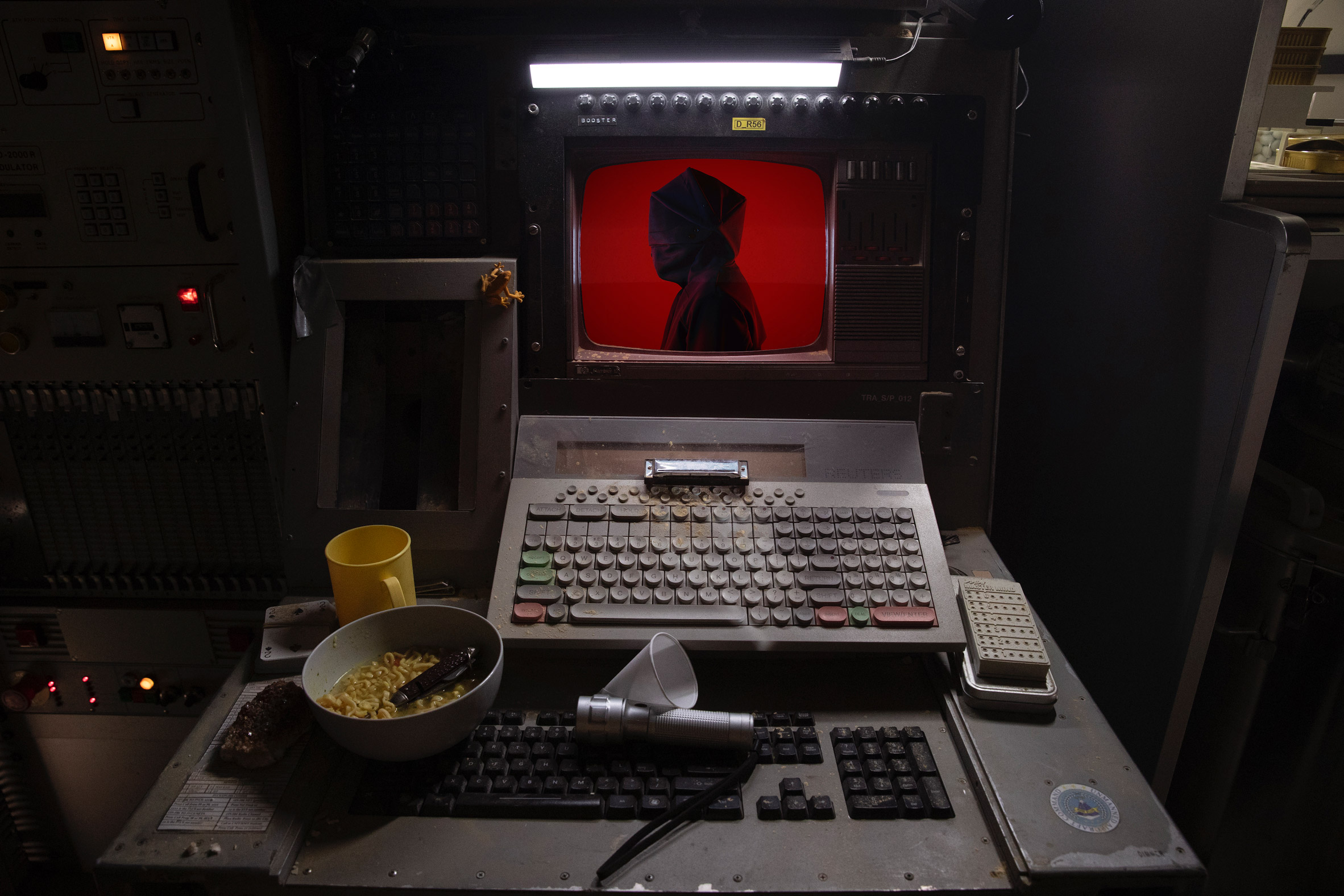
"The sleeping conditions we take for granted on Earth, like quiet and darkness, are far from guaranteed in space," explained Vollebak co-founder Steve Tidball.
"Astronauts on the International Space Station experience 16 sunrises a day, and 75 per cent of crew report using sleeping pills which induce sedation rather than deep sleep," he told Dezeen.
"This in turn impacts cognitive ability and alertness in space, where there's little room for error."
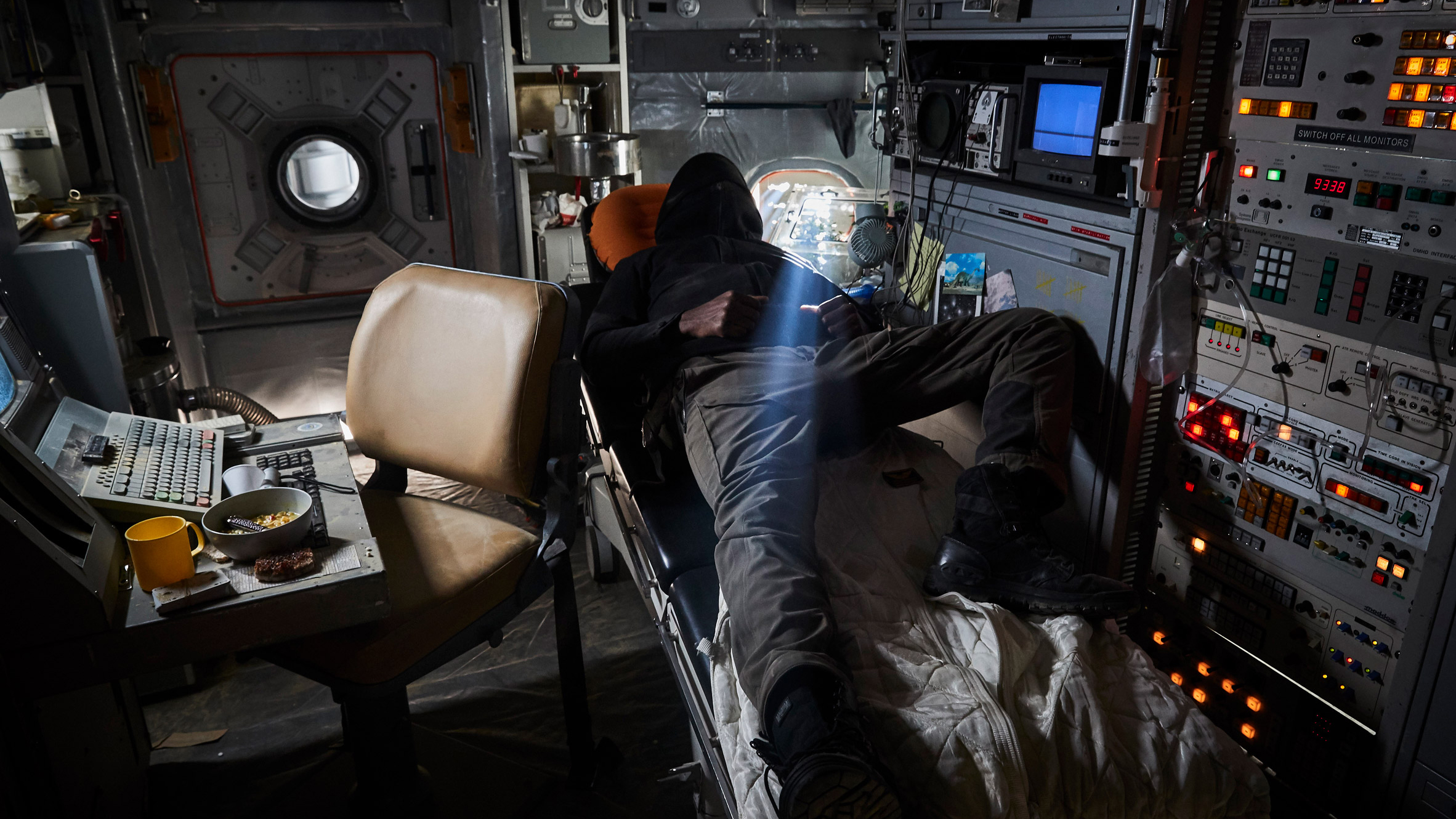
The jacket is designed to be "a microhabitat for a person", so that the wearer is not reliant on the environment they are in to fall sleep.
To allow the wearer to sleep, the coat has a large hood that resembles the visor on a space helmet and is made from five segments that can fold down and cover the wearer's entire face.
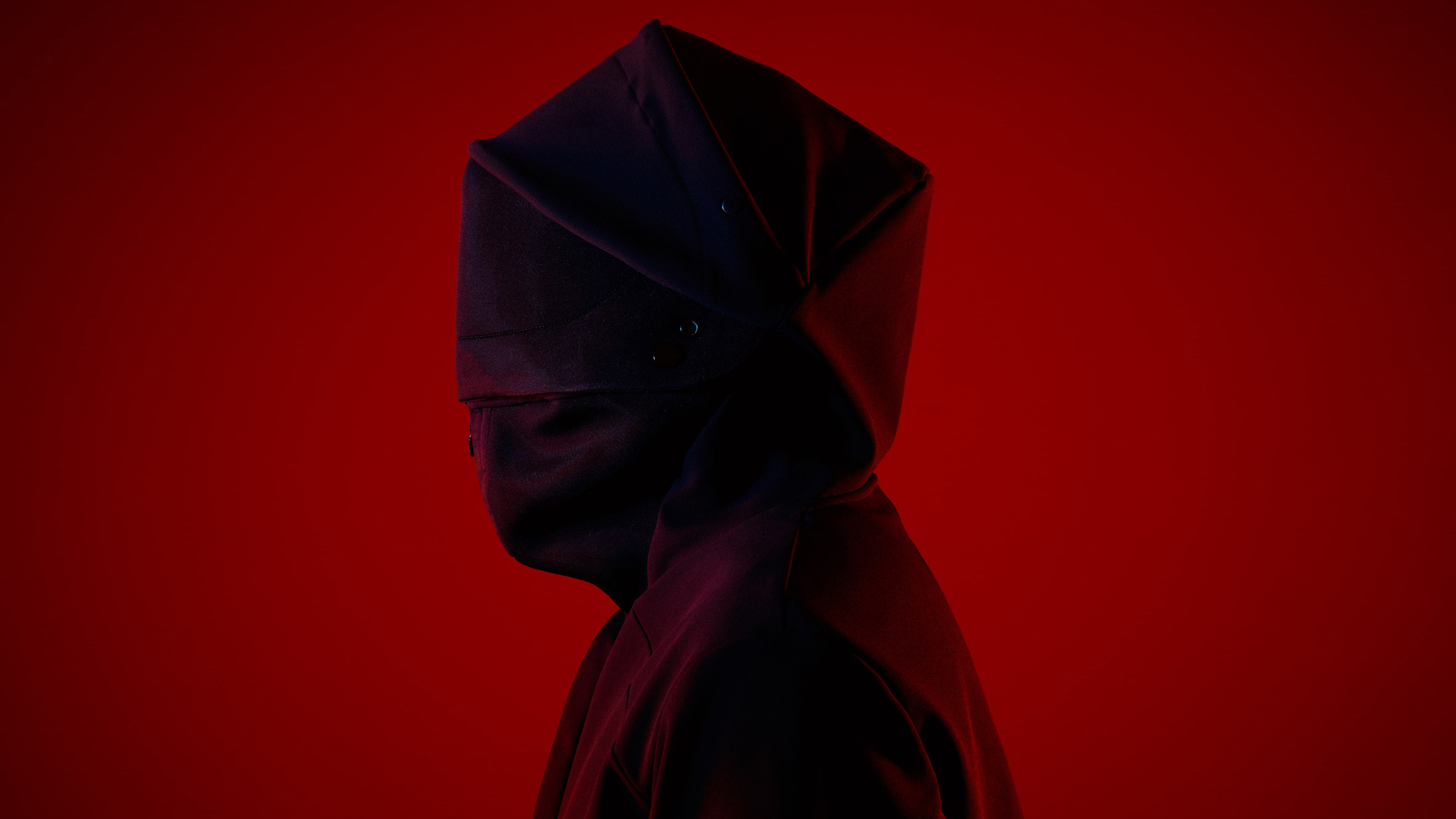
The soft hood is designed to hold its shape to create a cocoon that is kept clear of the wearer's face. It has a segmented structure that is similar to the body of a woodlouse.
"To solve this engineering challenge with a single piece of clothing we turned to nature and looked at structures that are highly adaptable, protective, and allow creatures to metamorphose from one state to the next," said the brand.
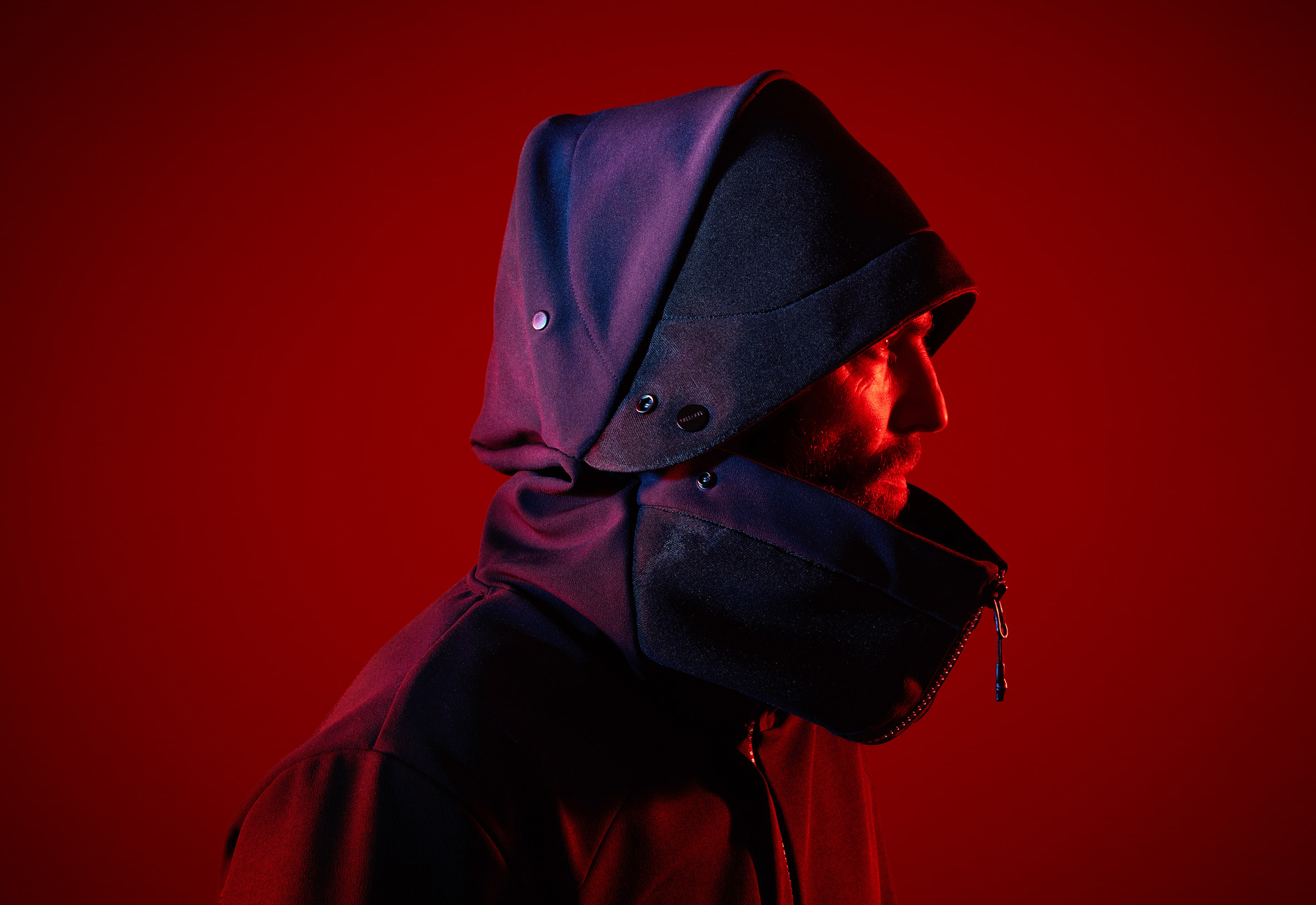
While the hooded section looks identical to the rest of the jacket it is constructed from a breathable, mesh fabric that wearers can see out of but people on the outside can't see through.
The rest of the coat is made from a three-layer fabric for warmth with a waterproof and windproof membrane. A two-way zipper means the wearer can decide how enclosed within the jacket they want to be.
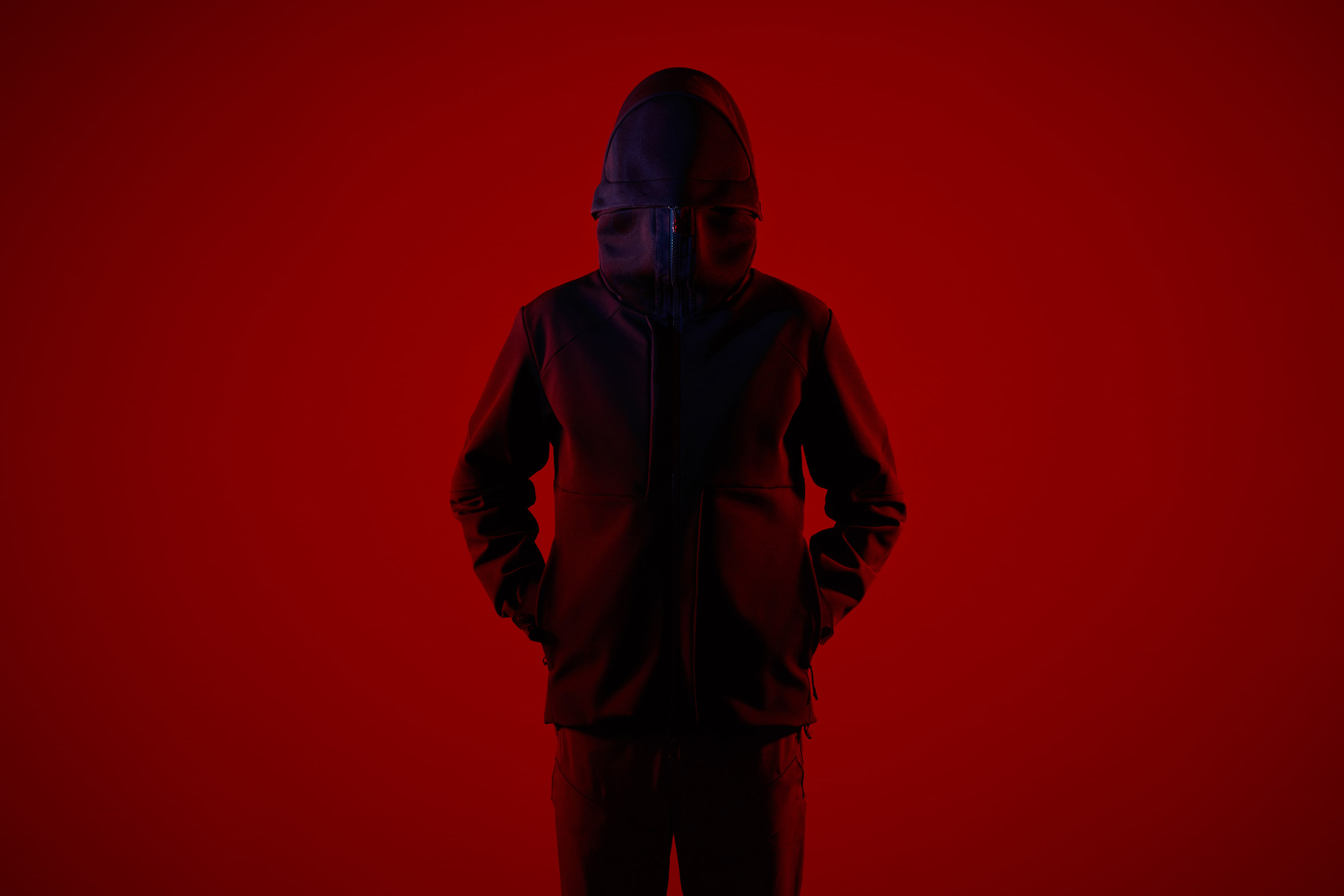
Vollebak built the jacket for the first journeys to Mars, as their research showed that current sleeping conditions in outer space leaves a lot to be desired.
"Sleep in space today is not exactly a vision of the future," explained Tidball. "Alongside eye masks and earplugs every crew member has a cupboard-sized sleeping pod with a sleeping bag fixed to the wall with a bungee cord to combat microgravity and air currents."
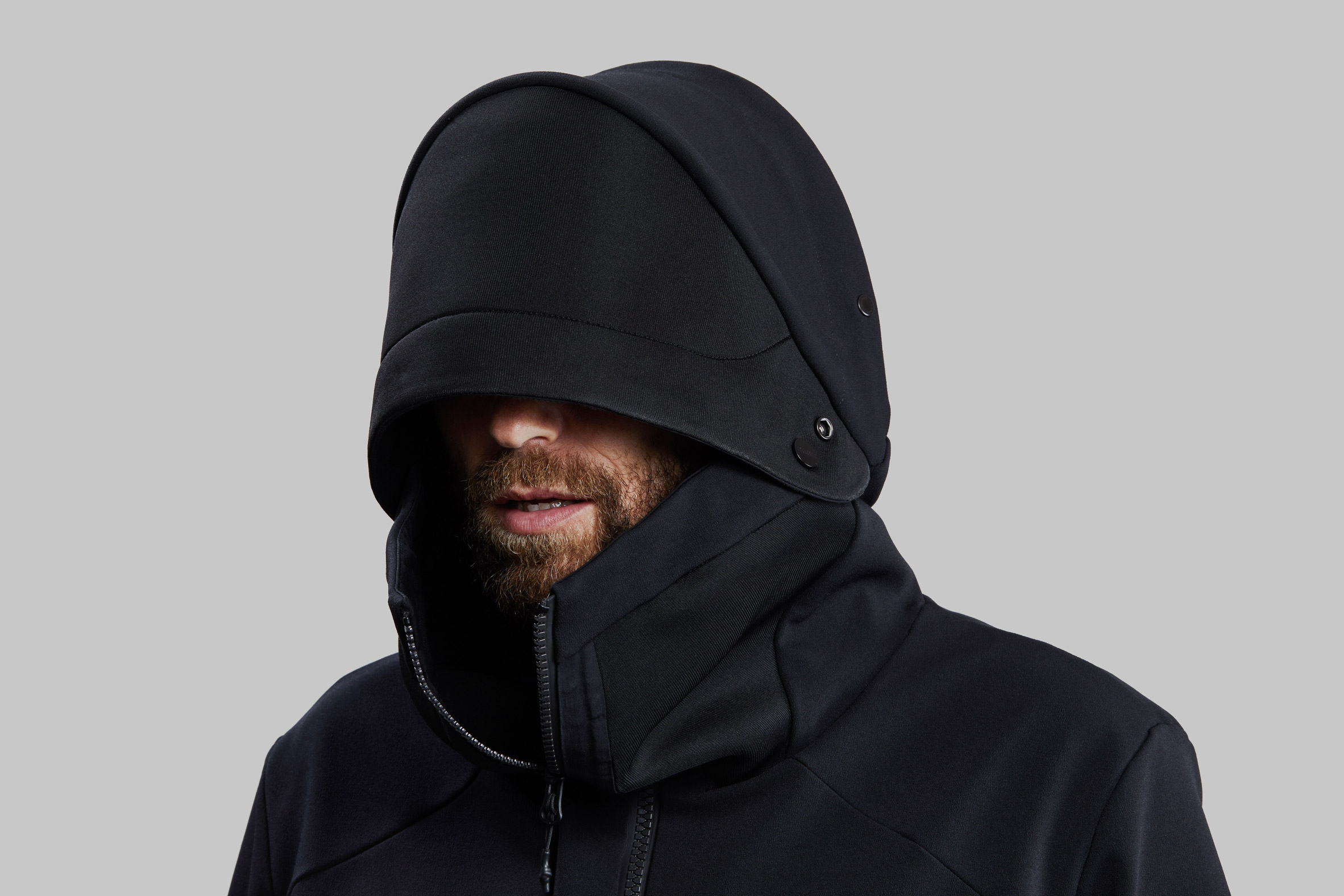
Tidball believes that people's sleeping habits will have to adapt to the light conditions in space, and this may mean reverting to patterns of sleep found before the invention of electric lighting.
"Before the introduction of artificial light during the Industrial Revolution, sleeping several times a day was common," explained Tidball.
"Many nomadic and hunter gatherer societies still sleep on and off during day and night, and under experimental conditions people sleep and wake more frequently," he continued.
"So the Deep Sleep Cocoon is built for shift-pattern sleeping that we may well revert back to as we travel further and further into space – by allowing the clothes you're in to double as your sleeping bag."
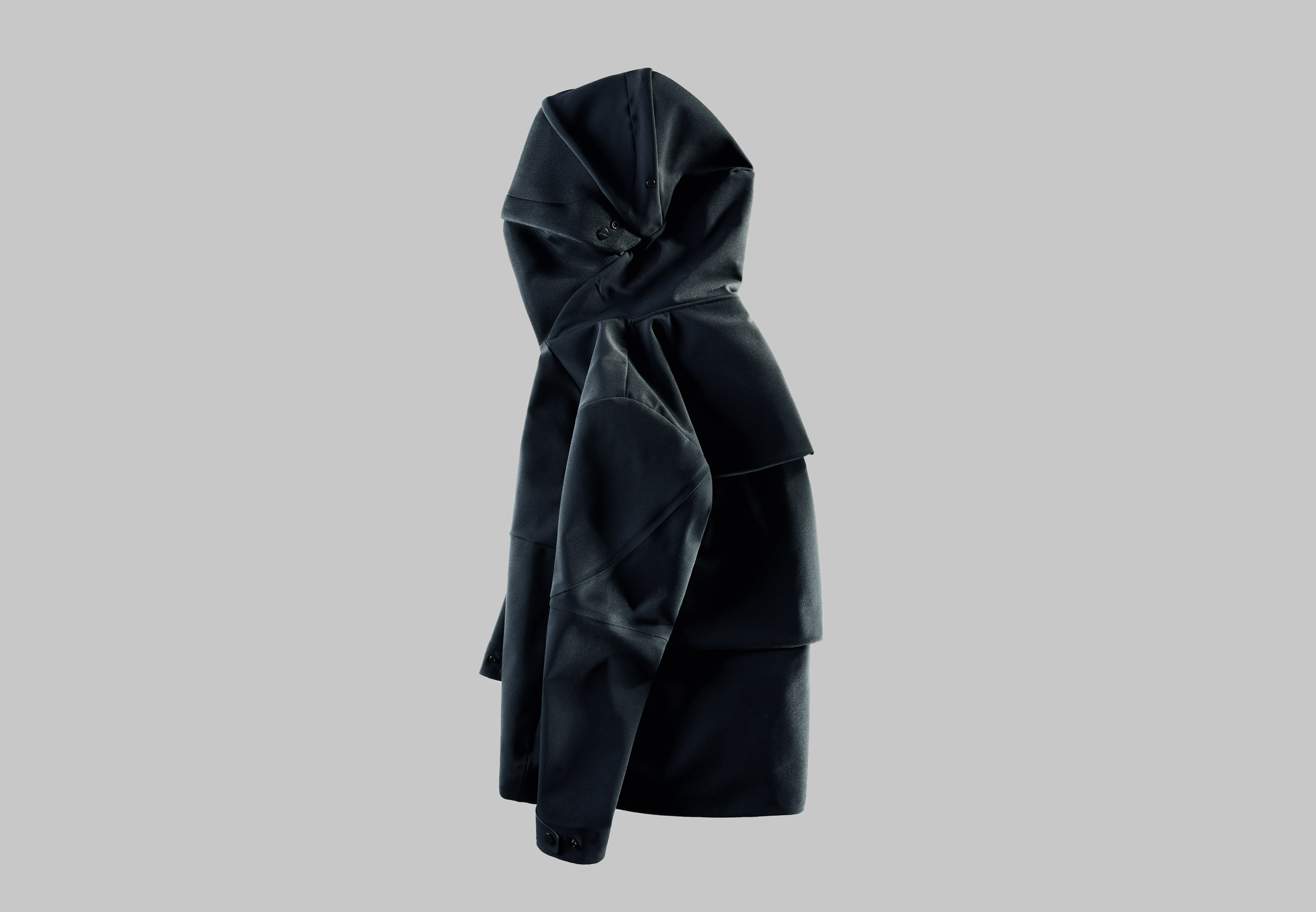
Vollebak predict that as humans travel further into space the clothes that they wear will have to be become more useful.
"As something that's always attached to us, clothing is uniquely suited to solve some of the simplest as well as most complex questions that will arise as we go intergalactic," said Tidball.
"It will become our breathing system, our doctor, sleep aid, source of comfort, food and hydration. In an environment like space where every gram and every square millimetre increases the cost of the mission, clothing will have to start to do more."
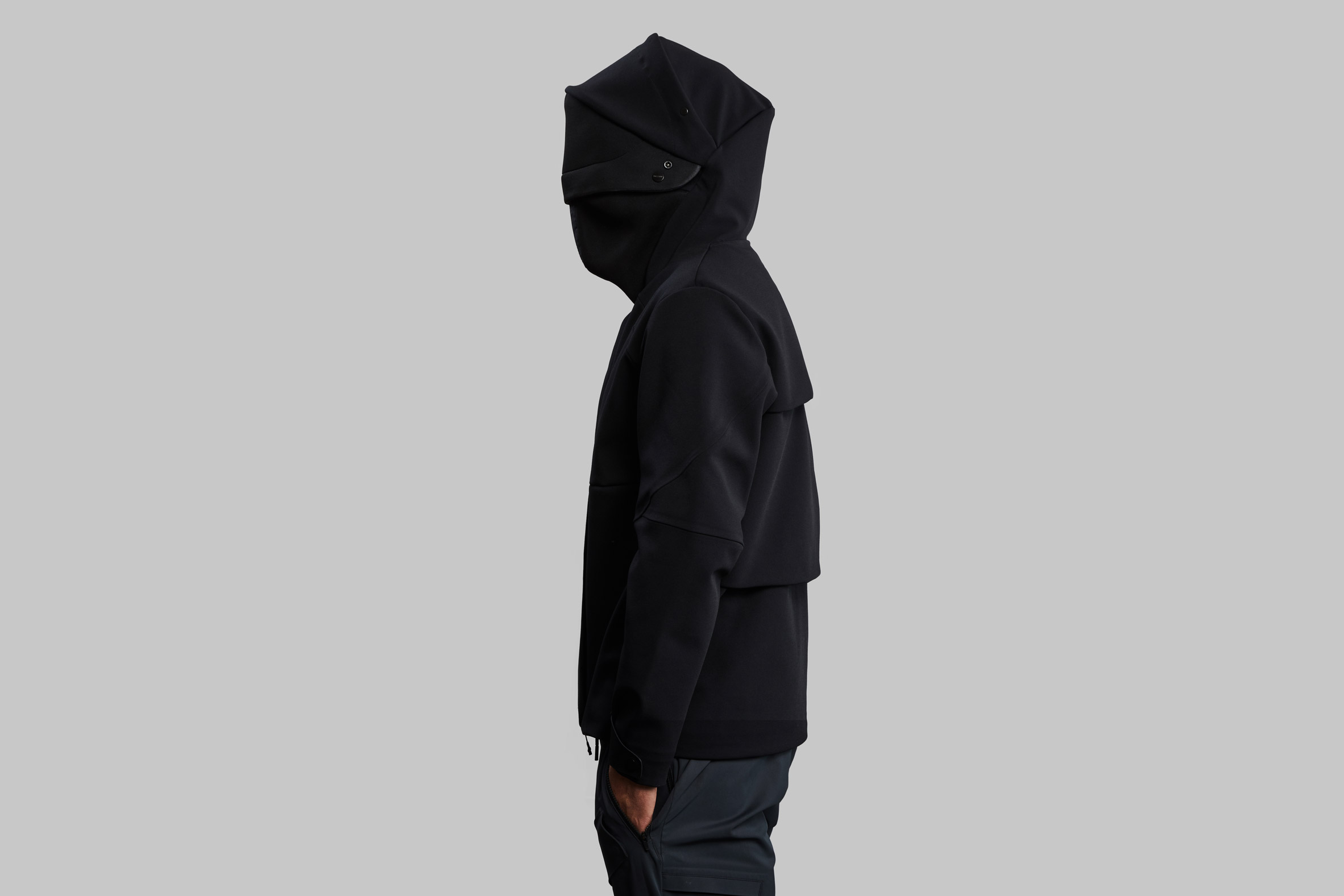
Clothing company Vollebak was established by twin brothers Steve and Nick Tidball in 2015. The company has launched numerous experimental items of clothing including the first jacket made of graphene, which acts as a radiator.
It has also released a T-shirt made entirely from wood pulp and algae and a jacket that reflects light from two billion glass spheres. Vollebak also made a coat for early man called the 50,000 BC jacket.
"Creating clothing for the first journeys to Mars and clothing for early man's colonisation of Earth are equally fascinating engineering challenges," said Tidball.
"Over the past 50,000 years clothes have helped us maintain stasis – keeping us warm, dry, cool, or conferring status. Over the next 50,000 years clothes will help enhance everything from strength, to health, to sensory perception. It's simply a question of what timescale that happens on."
More images
